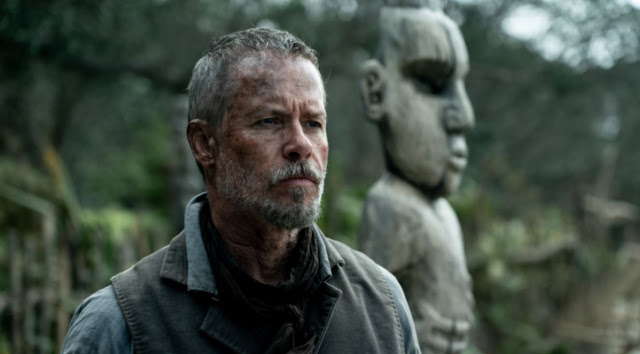The Convert: Movie Review
Cast: Guy Pearce, Tioreore Ngatai-Melbourne, Antonio Te Maioha, Jacqueline Mckenzie, Lawrence Makoare
Director: Lee Tamahori
Dark, moody and perhaps muted, Kiwi director Lee Tamahori's foray into New Zealand's past is solid movie that never quite hits its emotional footing.
Guy Pearce plays lay preacher Thomas Munro, caught between his own violent past and the violence of 1830s New Zealand. As Munro heads to the newly-established settlement of Epworth, his ship is forced to anchor for repairs. However, he finds himself in a battle between rival Māori tribes - and offered a choice between saving two rivals, he is tasked with looking after a grieving Rangimai (Ngatai-Melbourne).
But as he heads to Epworth with his new charge, Munro finds he must battle entrenched racism and shifting allegiances as war begins to threaten.
With sparse locations adding to a feel of pre-colonisation, Tamahori's take on the bloody conflicts between the settlers and the land's inhabitants are perfect for world-building. In among the slow burn of The Covert, the film is less interested in any particularly deep characterisation outside of broad strokes for everyone.
Opening with a shot of one bird swooping the land before taking another out, The Convert is essentially about survival, as well as heavy-handed allegories about who exactly is converting - is it the local populace whose will must bend to the settlers, or is it Munro whose violent past is bending to something more akin to a saviour? (Perhaps Tamahori's biggest issue here is the white saviour trope).
There is a pensive almost aloof approach gifted Munro and while his more inward conflicts don't really bubble up until the end, Tamahori's lens on the Māori feels like it is less nuanced. Reduced only to conflict figures or objects by the villagers of Epworth, it's understandable to see for the narrative.
A proliferation of Māori language though marks The Convert out as a film that feels like it is paying debt to its forefathers, rather than simply using it to carry a story. And while it erupts in violence toward the end, both bloodied and shocking, the slow burn build serves The Convert well, even if its message of the dangers of imperialism is somewhat subdued in a well-shot period piece.

.tif)


%20&%20Edith%20Poor%20(Lizzie%20Moyle)_%C2%A9BBCS%20&%20Bunya%20Entertainment.jpg)
No comments:
Post a Comment